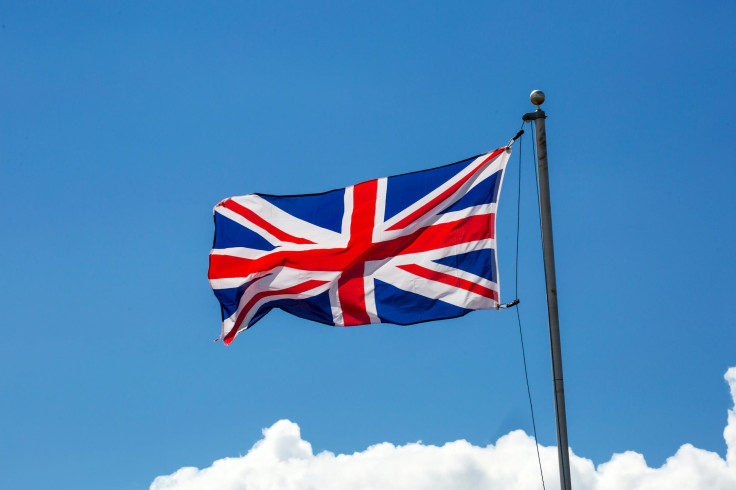UK Announces "Transformational" Support to Boost Global Health at UNGA
The new UK funding aims to achieve UN Sustainable Development Goals, bolster Health Security and improve global health around the world.

In a landmark announcement, the United Kingdom's government has unveiled a "transformational" commitment to bolster global health efforts and accelerate progress towards the United Nations Sustainable Development Goals (SDGs).
The new funding, which was revealed by the UK delegation at the United Nations General Assembly in New York, demonstrates the country's dedication to combatting future pandemics, advancing vaccine research and reducing infectious disease-related fatalities, with a particular focus on maternal and child health.
International Development Minister Andrew Mitchell and Health Minister Will Quince detailed the UK's ambitious plans during a series of health meetings at the UN General Assembly, emphasising how British scientific expertise will play a pivotal role in enhancing health security worldwide.
This comprehensive initiative includes investments of up to £103.5 million to develop affordable vaccines, £295 million for research and development into health products and treatments, £95 million for the Tackling Deadly Diseases in Africa Programme II and an additional £5 million for the TB Alliance.
The UK's commitment to global health is underscored by its investment of up to £103.5 million in developing affordable new vaccines and health products through the UK Vaccine Network (UKVN) and other research initiatives. This funding will significantly contribute to halting the spread of infectious diseases, furthering research into vaccines, and ultimately saving lives.
Health Minister Will Quince emphasised the importance of this investment, stating: "Vaccines, drugs and diagnostics can help prevent outbreaks in the developing world... This UK Vaccine Network investment will help deliver effective and accessible vaccines for populations threatened by infectious diseases and cements the UK's status as a leader in global health research."
Furthermore, an allocation of £295 million will support research and development into cutting-edge technology, enabling rapid responses to disease outbreaks. This funding will also enhance the health of mothers, babies and children in low and middle-income countries. By developing new methods of administering drugs, the UK aims to ensure life-saving care reaches even the most remote areas.
The UK is committed to strengthening global health security by partnering with African countries and international organisations through the Tackling Deadly Diseases in Africa Programme II. With a £95 million investment, this initiative will collaborate with Kenya, Ghana, Uganda, Malawi, the Democratic Republic of Congo, the World Health Organisation and the Africa Centres for Disease Control and Prevention.
Its goal is to enhance the detection and response capabilities for future epidemics, combat drug-resistant infections and address the impacts of climate change on health.
The United Nations' third Sustainable Development Goal (SDG 3) aims to "ensure healthy lives and promote well-being for all at all ages". The UK's commitment to global health research aligns with this goal, as it aims to prepare for, prevent and rapidly respond to disease outbreaks with pandemic potential, including diseases like Ebola. This funding also seeks to accelerate the development and availability of new vaccines and treatments for future pandemics.
In addition to the aforementioned investments, the UK will provide an additional £5 million to the TB Alliance to support the development and testing of new or improved tuberculosis treatments, including those for multi-drug resistant TB. This funding brings the UK's total contribution to the TB Alliance to nearly £70 million since 2017.
The UK government's recent health announcements build upon a track record of investing in health security through international development. Since 2017, UK-supported efforts have led to the introduction of over 30 new products to the market. This includes the distribution of more than 1 billion courses of malaria treatments, saving an estimated 13 million lives and the development of life-saving diagnostics for diseases like drug-resistant tuberculosis.
The UK's comprehensive health package encompasses several vital components. Firstly, the nation is dedicating £295 million to foster collaborative health research and development initiatives, enhancing global preparedness for disease outbreaks and advancing the accessibility and affordability of vaccines, medications, medical devices and diagnostics. This commitment also aims to reduce maternal, neonatal and child mortality rates in low and middle-income countries.
Additionally, the UK is allocating £5 million to support the TB Alliance in its fight against tuberculosis in the coming year. Furthermore, the UK Vaccine Network (UKVN) Project is set to receive up to £103.5 million, facilitating critical research into combatting infectious diseases that lead to epidemics in developing countries, with the UKVN having played a pivotal role in the development of the Oxford-AstraZeneca COVID-19 vaccine.
Lastly, a substantial £95 million investment is being made in the Tackling Deadly Diseases in Africa Programme II, bolstering the capacities of partner nations in Africa to detect and respond to future epidemics, drug-resistant infections and health challenges stemming from climate change. These commitments underscore the UK's steadfast dedication to global health and its ambition to contribute to a healthier, more resilient world.
These investments will not only save lives but also play a significant role in achieving the United Nations Sustainable Development Goals, working towards a better world by 2030.
As the UK takes a leading role in global health research and development, it is poised to make a profound impact on health security, disease prevention and overall well-being, both at home and abroad.
© Copyright IBTimes 2025. All rights reserved.























